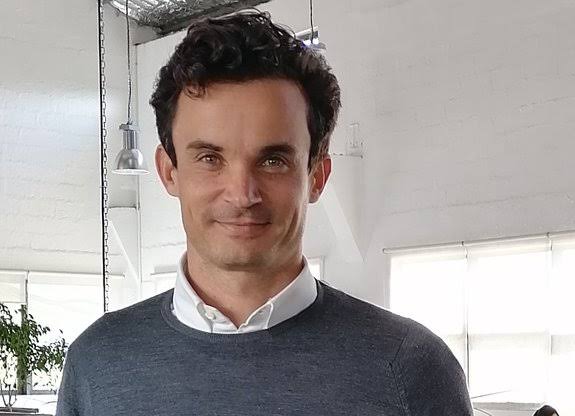Mauritius Government Backs The Country’s First Ever Crowdlending Startup, Fundkiss. To Invest Up To 10% In Startups Listed On The Platform
The government of Mauritius is known for supporting its startup ecosystem through laws and funds, but its latest is a deal breaker. The East African country, through its SME Equity Fund Ltd (‘SME Equity Fund’), has just given its consent, through a partnership, to the country’s first ever crowdlending platform, Fundkiss Technologies Ltd (‘Fundkiss’).

“This partnership is a perfect example of what cooperation between the different players in the financial ecosystem symbolises, with the common objective of boosting SME access to finance. The SME Equity Fund Ltd is a well reputed institutional investor that is joining the Fundlkiss community because of the deeper understanding that this collaboration makes sense, probably even more so in today’s world. We are confident that other institutional investors will join us to invest in the real economy, alongside individual investors, in promising projects led by passionate Mauritian entrepreneurs,” says Paul Perrier, Fundkiss’ co-founder and CEO.
Here Is What You Need To Know
- Under a public-private partnership, the SME Equity Fund would invest up to 10% on projects posted on the Fundkiss platform, up to a maximum of Rs 100,000 ($2.5k) per project.
- This move was captured in a Budget 2020–21 announcement which noted that ‘the SME Equity Fund Ltd will invest through the crowd lending mechanism to the tune of up to Rs 200,000 ($5k) per project’.
- Already, the SME Equity Fund has invested in about ten projects run on the Fundkiss platform.
- Launched in 2006, the SME Equity Fund Ltd (SEF) invests in start-ups, expansion projects and new lines of business. It provides equity financing to SMEs established in Mauritius, and where the majority shareholder of the SME is a Mauritian national. The investment range starts at Rs 500,000 ($12.6k) and can reach up to Rs 25m ($630k). The financing it provides to companies should not exceed 49% of the business’ equity capital — which means that the entrepreneur, must invest in at least 51% of the share capital. Since inception, the fund has provided financial support to more than 150 companies for an amount exceeding Rs 550 million ($13.8m).
“We see this partnership between the SME Equity Fund and Fundkiss as a “game changer”. The market is moving in the right direction. Fundkiss is among the first to have obtained a licence under the National Regulatory Sandbox Licence (RSL) regime and will soon transition to a more permanent licence under the FSC, while the SME Equity Fund already holds a CIS license under the FSC. This collaboration is a significant step for SMEs and will provide the necessary impetus to FinTech in Mauritius,” Mardayah Kona Yerukunondu, Chairman of the Financial Services Commission and First Deputy Governor of the Bank of Mauritius, said.
Another Way Of Democratising Access To Finance For Local Startups In A Continent Filled With Foreign Venture Capital Firms
Since 2019, startups in Mauritius are experiencing reforms upon reforms in their favour. Fundkiss, which is pioneering crowdlending platform in Mauritius, is encouraged by the country’s National Regulatory Sandbox License regime of the Economic Development Board (EDB).
Mauritius’ Regulatory Sandbox License (RSL), which was introduced to the Mauritian business landscape by the National Budget 2018/2019, offers the possibility for an investor to conduct a business activity for which there exists no legal framework, or adequate provisions under existing legislation in Mauritius. All the investor needs to do is to submit a duly filled in application for the issuance of a Regulatory Sandbox License, demonstrating the innovative nature of the project at the local, regional or international level.
FundKiss was among the first set of startup companies in Mauritius issued with the regulatory sandbox licenses in 2019. Others include: Xen technologies Ltd a next-generation wealth management platform; SALT Technology Ltd, the first lending platform in Mauritius for blockchain-backed loans; Selfkey, a blockchain-based, decentralized identity management system which provides open source tools for identity owners and relying parties; PIRL, a blockchain implementation that strives to improve the accessibility of cryptocurrency and its related technologies; Olive Crowd project, a financial technology company which serves as an online equity crowdfunding platform; FusionX, which seeks to establish a FIAT enabled crypto currency exchange with offices and staff domiciled in Mauritius; FinClub, a P2P platform will provide an alternative mode of borrowing funds for the borrowers; Be Mobile Limited, an innovative eWallet service based on blockchain and leveraging on cryptocurrencies to transfer money and exchange currency at zero to low cost.

Read also: How Mauritius’ Laws Encourage Local Startup Growth
A Look At What Startup FundKiss Does
Fundkiss is Mauritius’ first licensed crowdlending platform that allows individuals and corporates to lend directly to SMEs and startups. The startup’s platform helps to connect borrowers (sole proprietors or startup companies) in search of financing, to lenders (individual or institutional investors) seeking to diversify their investments and support the real economy, with loan sizes ranging from Rs 50,000 to Rs 10 million.
To date, Fundkiss has financed more than 70 projects for funding of over Rs 31 million ($781k) bringing together a community of 1,750 investors in the process, of whom at least 276 are active lenders, in that they have invested at least once in the last 12 months.
A typical fundraising campaign launched on Fundkiss runs for a period of 15 days on average.
Charles Rapulu Udoh

Charles Rapulu Udoh is a Lagos-based lawyer who has advised startups across Africa on issues such as startup funding (Venture Capital, Debt financing, private equity, angel investing etc), taxation, strategies, etc. He also has special focus on the protection of business or brands’ intellectual property rights ( such as trademark, patent or design) across Africa and other foreign jurisdictions.
He is well versed on issues of ESG (sustainability), media and entertainment law, corporate finance and governance.
He is also an award-winning writer

